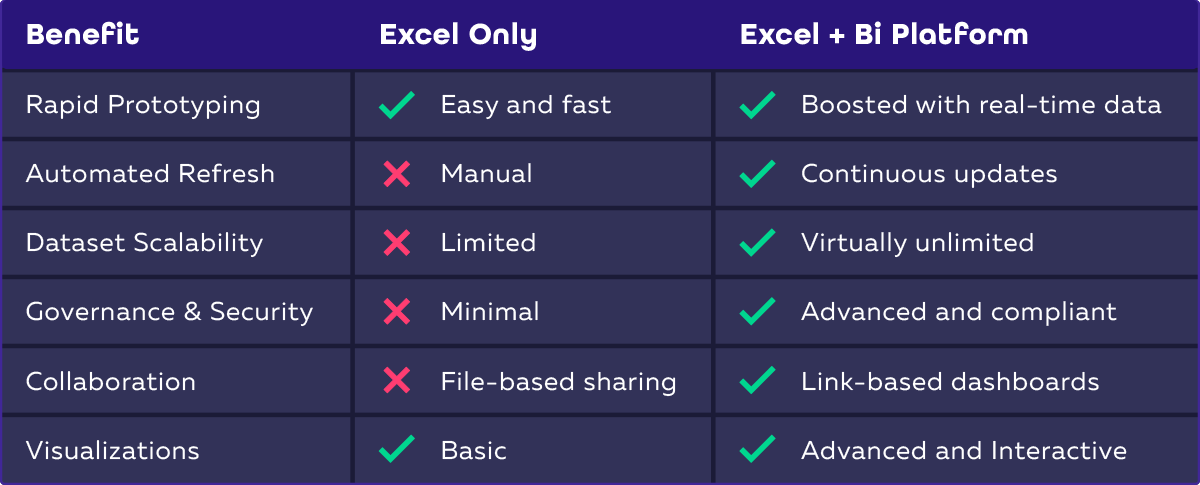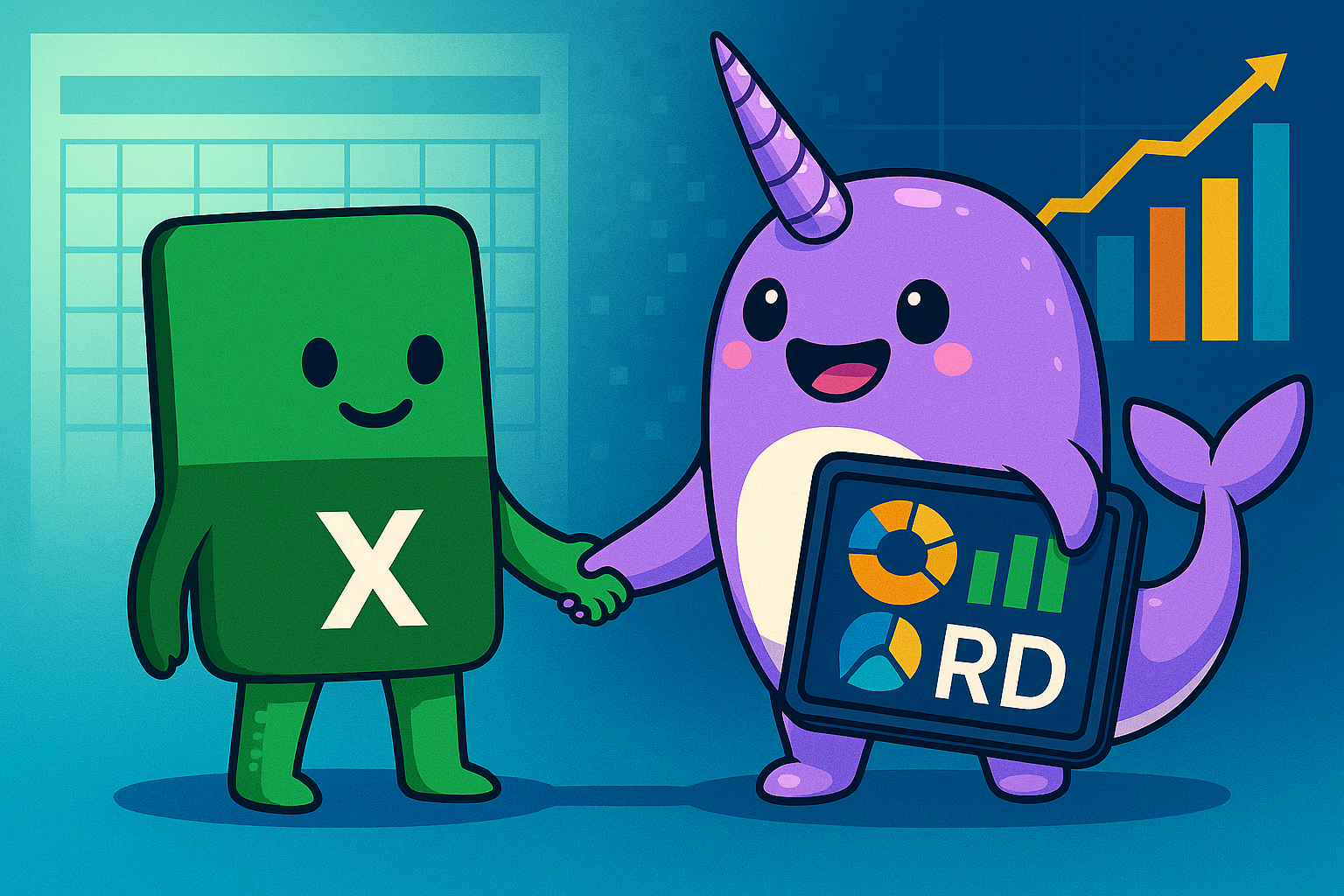RIP Excel? Everyone says it, but no one really means it. But there is a little truth hidden under the surface…
In recent years, the phrase “RIP Excel” has gained traction. Sure, that’s fun, but is it actually true? Excel is still at the core of business analysis: it’s familiar, accessible, versatile, and present in virtually every office. Many suggest it should be completely replaced. But in truth, it’s far more effective to consider Excel a valuable ally, a solid starting point that integrates with business intelligence tools to expand its capabilities.
According to recent industry data, Excel remains the overwhelming favorite: 81% of businesses use it globally with over 750 million users. Moreover, 99% of Financial Planning & Analysis (FP&A) professionals still use Excel for planning and reporting, with 93% relying on it on a daily or weekly basis. Ignoring a tool so deeply embedded in business operations risks underestimating a cornerstone of productivity.
Excel: A Starting Point, Not the Final Destination
Before talking about replacing Excel, it’s essential to acknowledge everything it continues to offer. Here’s why it remains a central asset:
- Immediate Accessibility: Anyone with the Office suite knows how to use Excel. It doesn’t require extensive training to create tables, models, or pivot tables.
- Flexibility and Rapid Prototyping: Excel is ideal for testing hypotheses, building temporary models, and visualizing data in a semi-automated way.
- Integration with Other Systems: With Power Query and Power Pivot, Excel can extract data from databases, CRMs, and other systems, simplifying complex imports. (although we have better ways of handling that scenario)
Excel continues to serve as an indispensable foundation for many operational scenarios.
Modern BI = Collaboration, Automation, and Real-Time Visibility
Modern BI platforms (👋) bring capabilities that Excel alone cannot offer:
- Advanced Automation and Data Preparation: Automating data transformation and preparation helps companies save valuable time, reduce errors, and standardize workflows.
- Real-Time Data and Instant Sharing: Dashboards update automatically and can be shared via secure, customizable links, ensuring data consistency and timeliness.
- Scalability and Governance: BI platforms enable centralized control, access management, and compliance, even across large data volumes.
- Optimized Data Consumption: Dashboards can be tailored to the needs of specific roles, teams, or departments, making data readable, accessible, and actionable—even for non-technical users.
Excel + BI: A Strategic Match
It’s not about replacing Excel, it’s about enhancing it through synergy with BI platforms. Here’s how they complement each other:
- Prototyping in Excel: Analysts build models and spreadsheets to explore metrics, test formulas, and quickly validate scenarios.
- Transition to Production: These models are then enhanced or rebuilt in BI platforms, making them more robust, automated, and shareable.
- Centralized Collaboration and Governance: BI platforms allow teams to create dashboards filtered by department or client, with real-time updates and granular access controls. Excel remains the go-to tool for ad-hoc and personal analysis.
Why Modern BI Platforms Make a Difference
Today’s business intelligence solutions represent a leap forward in managing and distributing company-wide insights:
- Flexible Connections: CRM, databases, apps… direct integration with countless data sources that you’re already using.
- Automatic Data Refresh: Eliminates outdated or duplicated data issues.
- Customizable Dashboards: Widgets, filters, advanced charts, and dynamic visualizations designed around specific KPIs.
- Advanced Data Transformation: Filtering, joins, segmentation, and in-platform editing.
- Security and Scalability: User permissions, groups, workspaces, and personalized SLAs.
- Tailored Support: Customer service always available for onboarding, consulting, and continuous improvement.

Excel + BI = A Winning Synergy
Declaring Excel dead is an oversimplification that doesn’t match reality. Excel remains a fundamental tool. When integrated with modern BI platforms like ours, it becomes part of a powerful, scalable, and future-ready system.
True digital transformation begins by maximizing the tools you already use and complementing them with more advanced solutions. Combining Excel with a modern BI platform means getting the best of both worlds: flexibility and immediacy on one side, automation and scalability on the other.
👉 If you’re ready to elevate your analytics, we’re your ideal partner to make Excel shine like never before.
Ready to turn your data into real business value?
Let’s talk and explore how we can support your growth in 2025 and beyond.
P.S. Did we mention we have an Excel integration for our BI platform? There. Now we did.



